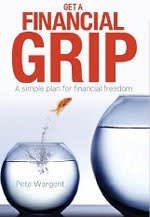Dare to be different in property investment
If you want to be achieve financial freedom at a younger age, you will need to think and act differently to the herd. If you adopt the same approach as most people (striving for a high-paying job, two nice cars and the most expensive house you can afford), it stands to reason that you will probably achieve the same results as most people.
For our generation, this is likely to mean working until at least 65 – and possibly far beyond, as retirement ages look set to increase to 70 – and taking a substantial cut in earnings upon retirement. You will need to think differently and be prepared to take another course of action.
Why not consider shunning buying your own home to live in and renting instead? Part of the problem with buying a hugely expensive house to live in is that you never seem to have enough left over at the end of the month for anything, let alone building a sizeable portfolio of investments.
Renting is often significantly cheaper than buying a property, partly because interest rates tend to be higher than rental yields, and partly because the landlord retains responsibility for repair costs, strata fees and insurance. Renting can afford you the luxury of investing heavily instead of being tied to a huge monthly mortgage repayment.
If you were to rent instead of buying a property to live in, there are limitless choices as to where you can allocate your assets.
The traditional growth assets are shares and property, so a more moderate approach would be to consider some fixed interest investments (e.g. bonds) and some diversified funds. The most aggressive approach would be to shun diversification and invest exclusively in property and/or shares.
The neat thing about this approach is that because you have not lumbered yourself with a huge mortgage, you can instead take out multiple mortgages and have tenants pay them off for you.
An interesting statistic is that a high percentage of self-made millionaires in many countries are immigrants. There could be any number of reasons for this. My view is that immigrants are more likely to become self-made millionaires because they are less inclined to be restricted by generally accepted rules.
Immigrants do not worry what a close circle of friends and family may think of their strategies; they only concern themselves with delivering results. Too many of us do not dare to take the different road for fear of failure, and instead worry about what our peer group will say about us if we fail.
Here’s a short anecdote: while travelling in Darwin, my wife and I were threatened on a bus by a drunken old lady and her man. The driver made the couple leave the bus, but the old lady returned with a broken brick to smash the window right next to our faces. Nothing much came of it and we were OK.
I later recounted this story to a friend in Sydney, and he said, ‘You are a millionaire, with all those shares and properties, and you take a bus? A bus! I would never, ever travel on a bus out of principle. I always take taxis. Everywhere.’
Although I didn’t respond by saying so, a gross oversimplification of the truth is that I’m a millionaire because I am prepared to take a bus.
You may not believe that small savings make a difference, but if over time you carefully consider the impact of all your expenditure, seemingly small changes can make a monumental difference to your wealth.
This is especially true if you choose to invest the savings in appreciating assets such as shares and index funds. Even Warren Buffett has been known to pick up a 10 cent coin from the floor of an elevator: ‘…the start of my next million.’
If you are young and the house you want to live in seems forever beyond your reach, think outside the box. Cancel useless subscriptions or the gym membership you don’t use. Get a cheaper mobile phone plan and invest the savings in shares or an index fund.
If, unlike me, you have wealthy parents, ask them to join you in buying an investment unit, with them supplying some of the deposit, and buy in a cheaper suburb or city that you can afford. Then, you will at least have a foothold in the property market, so that it doesn’t seem to increase in value while remaining forever beyond your reach.
The options are too numerous to list here. At some stages of the economic cycle you may be able to find a mortgage broker who can help you find a bank that will lend you 95% or even 100% of an investment property’s value, and then, perhaps not too far down the track, that investment property will grow significantly in value so that you can refinance it and buy three more investment properties.
The specifics will differ for each person, but the fundamental concept is the same. If you can begin to appreciate and believe that it is possible to escape the rat race, then you will automatically begin to reduce the wasting of money on unnecessary items. Start small and grow big. This is the very essence of wealth creation through investment.
Remember, it is all too easy to be a lemming and to follow your peers over the financial cliff – no individual lemming ever received bad press for failing in the conventional way. It takes guts to take the different path.

Pete Wargent holds a range of finance and property qualifications and is the author of Get a Financial Grip – a simple plan for financial freedom.